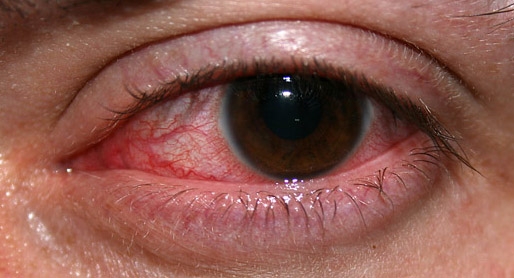Snow blindness, also known as Photokeratitis, is a painful eye condition. It occurs when your eyes receive a continuous exposure to direct sunlight or dark energy i.e. ultra-violet radiation (UV) or human-made sources. It causes temporary loss of vision. Photokeratitis is a scientific term where photo means light and keratitis means inflammation of the cornea. It affects the thin layer of cornea and conjunctiva.
It is named as snow blindness because snow is highly reflective to ultraviolet radiation and that's why it gained popularity. Snow blindness is caused due to sunburned eyes or sunburned cornea. When you have been in the sun too long, by the time your eyes suffers from sunburn as like our skin. We can prevent our eyes by wearing proper protection.
Causes
It is mainly caused by ultraviolet radiations that damage eyes. UV ray's main source is sunlight. The eyes can also be damaged from the reflection of water, snow, and sand. Snow reflects 80% of the ultraviolet rays.
Continuously staring at the sun or watching solar eclipse with naked eyes can be the most leading examples to damage eyes. The rays coming from solar eclipse can damage the retina as well, i.e. not a temporary eye problem.
This type of problem occurs mostly in the South & North Pole's high mountain areas, where the density of the air is thin and provide more access to UV radiations.
This condition can occur due to freezing of the cornea or severe drying of the corneal surface. The reason behind this condition is dry air during snow bowling, mountain climbing, and skiing.
Symptoms
Its symptoms are unnoticed till that your eyes get damaged. You may feel some symptoms including pain, headache, redness, eyelid twitchiness, temporary vision loss, seeing halos, swelling, tearing, gritty feeling, small pupil, sensitivity to direct light. In severe condition, you may feel temporary color changes.
Treatments
It can be prevented by its own. You just need to feel your eyes better or heal the pain. If you are wearing contact lenses, then get it off immediately.
-
Wash your closed eyes with cold water.
-
Use artificial tearing.
-
Avoid rubbing the eyes.
-
Take the pain reliever and eye drops as suggested by the doctor.
Prevention
Snow blindness can be prevented by wearing sunglasses, snow goggles, and welding helmets. These things will protect your eyes from photokeratitis.













No Comments